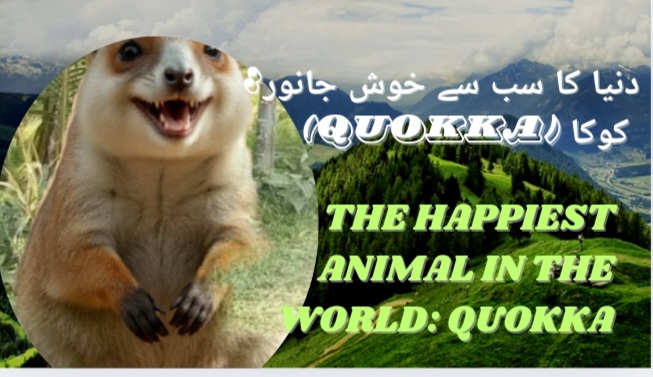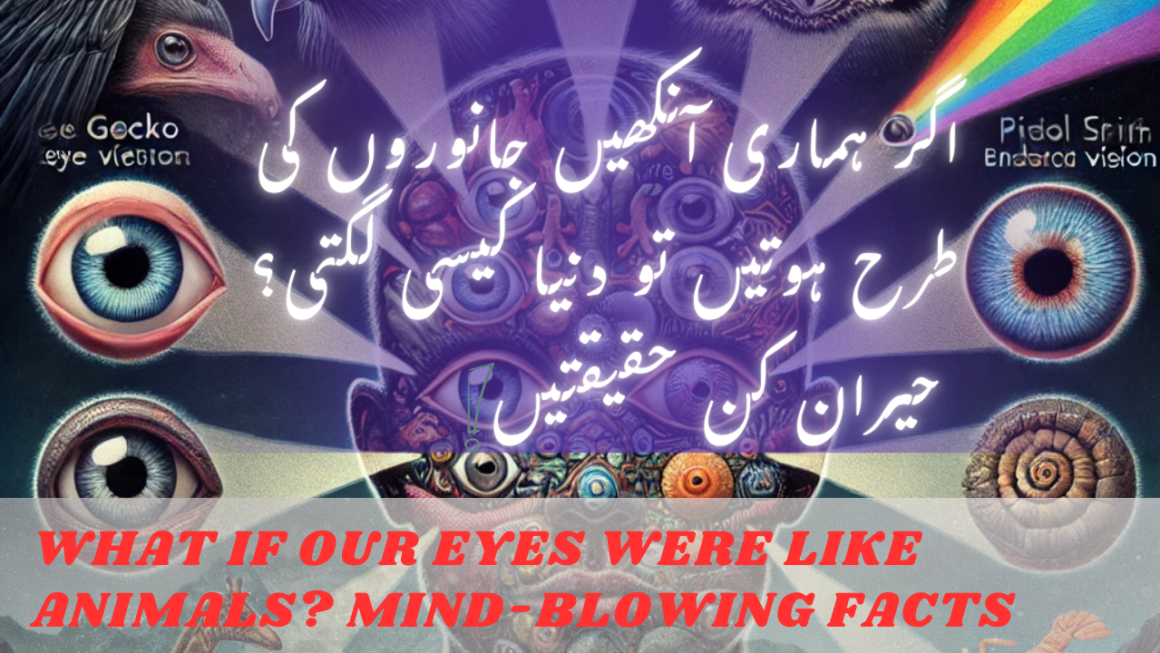دنیا کا سب سے خوش و خرم جانور: کوکا (Quokka)
آپ نے شاید کوکا (Quokka) کے بارے میں نہ سنا ہو، لیکن سوشل میڈیا پر اس کی مسکراتی تصاویر ضرور دیکھی ہوں گی۔ کوکا اپنی مسکراہٹ بھری شکل اور معصومیت کی وجہ سے دنیا کے سب سے خوش جانور کے طور پر جانا جاتا ہے۔ کوکا کینگرو کے خاندان Macropodidae سے تعلق رکھتا ہے اور اس کی خصوصیات اور طرز زندگی اسے منفرد بناتی ہیں۔
کوکا کا مسکن اور طرزِ زندگی
کوکا عام طور پر آسٹریلیا کے چند مخصوص جزیروں جیسے روٹنیسٹ آئی لینڈ اور بالڈ آئی لینڈ پر پایا جاتا ہے۔ یہ گھاس اور پتوں پر گزارہ کرنے والا جانور ہے جو زیادہ تر رات کے وقت فعال رہتا ہے۔ کوکا انسانوں سے خوفزدہ نہیں ہوتا اور یہ اپنی دوستانہ طبیعت کے باعث سیاحوں کے درمیان خاصا مقبول ہے۔ لوگ اکثر اس کے ساتھ تصاویر کھنچواتے ہیں، اور کوکا کی یہی بے خوفی اسے منفرد بناتی ہے۔
تاہم، حکومت نے کوکا کو پالتو جانور کے طور پر رکھنے پر پابندی عائد کر رکھی ہے تاکہ اس کی افزائش کو محفوظ رکھا جا سکے۔
دوستانہ اور معصوم رویہ
کوکا کا دوستانہ رویہ اسے دیگر جانوروں سے مختلف بناتا ہے، لیکن یہی خصوصیت بعض اوقات اس کے لیے خطرناک بھی ہو سکتی ہے۔ یہ لومڑی جیسے شکار کرنے والے جانوروں کے ساتھ بھی کھیلنے کی کوشش کرتا ہے، جو اکثر اسے نقصان پہنچا دیتے ہیں۔ کوکا کی اس بیوقوفی نے اسے خطرے سے دوچار کر دیا ہے، اور اسی وجہ سے اس کی بقا کے لیے خصوصی اقدامات کیے جا رہے ہیں۔
دنیا کا خوش ترین جانور
کوکا کی منفرد مسکراہٹ اور پرسکون انداز اس کے بارے میں یہ تاثر دیتے ہیں کہ یہ ہمیشہ خوش رہتا ہے۔ درحقیقت، کوکا کی یہی مسکراہٹ اسے انٹرنیٹ پر مشہور کرتی ہے، اور دنیا بھر کے سیاح آسٹریلیا میں اس کی ایک جھلک دیکھنے اور تصاویر لینے کے لیے بے تاب رہتے ہیں۔ اس کی خوشی اور معصومیت نے اسے سوشل میڈیا پر ایک ٹرینڈ بنا دیا ہے۔
حفاظتی اقدامات
کوکا کی بقا کو یقینی بنانے کے لیے آسٹریلوی حکومت نے کئی اقدامات کیے ہیں۔ ان کے قدرتی ماحول کو محفوظ بنایا گیا ہے، اور سیاحوں کو ہدایت کی جاتی ہے کہ وہ ان کے ساتھ اچھا برتاؤ کریں اور ان کی زندگی کے قدرتی انداز میں مداخلت نہ کریں۔
کوکا نہ صرف دنیا کا خوش ترین جانور ہے بلکہ یہ انسانوں کے لیے ایک سبق بھی ہے کہ چھوٹی چھوٹی خوشیوں کو محسوس کر کے کیسے زندگی کو بہتر بنایا جا سکتا ہے۔ یہ ننھا جانور نہایت معصوم، دوستانہ اور خوش باش ہے، اور اس کی بقا کے لیے ہمارا فرض ہے کہ ہم اس کے قدرتی ماحول کا احترام کریں اور اس کے تحفظ میں اپنا کردار ادا کریں۔
The World’s Happiest Animal: Quokka
You may not have heard of the Quokka, but you’ve surely seen its smiling pictures on social media. The Quokka, with its smiling face and innocent expression, is known as the happiest animal in the world. Belonging to the Macropodidae family, which includes kangaroos, the Quokka has unique characteristics and lifestyle that make it stand out.
Habitat and Lifestyle of the Quokka
The Quokka is typically found on a few specific islands in Australia, such as Rottnest Island and Bald Island. It is a herbivore that feeds on grass and leaves, usually active at night. One of the most interesting features of the Quokka is that it is not afraid of humans. Its friendly nature has made it quite popular among tourists, who love to take photos with it. However, the government has placed a ban on keeping Quokkas as pets to ensure their protection and conservation.
Friendly Yet Vulnerable
The Quokka’s friendly behavior makes it different from other animals, but this trait can sometimes be dangerous for it. It often tries to play with predators like foxes, which can harm it. Due to its naivety, the Quokka faces several dangers, and this is why special conservation efforts are in place to protect it.
The Happiest Animal in the World
The Quokka’s distinct smile and calm demeanor give the impression that it is always happy. In fact, its smile has made it a viral sensation on the internet, and tourists from around the world eagerly visit Australia to catch a glimpse of it and take photos. Its joyful and innocent nature has turned it into a trending topic on social media.
Conservation Efforts
To ensure the survival of the Quokka, the Australian government has implemented various measures. Their natural habitats have been protected, and tourists are advised to treat them with respect and avoid disturbing their natural way of life.
The Quokka is not only the happiest animal in the world but also a reminder for humans to appreciate the small joys in life. This tiny animal is remarkably innocent, friendly, and full of happiness. It is our responsibility to respect its natural environment and contribute to its conservation efforts.




